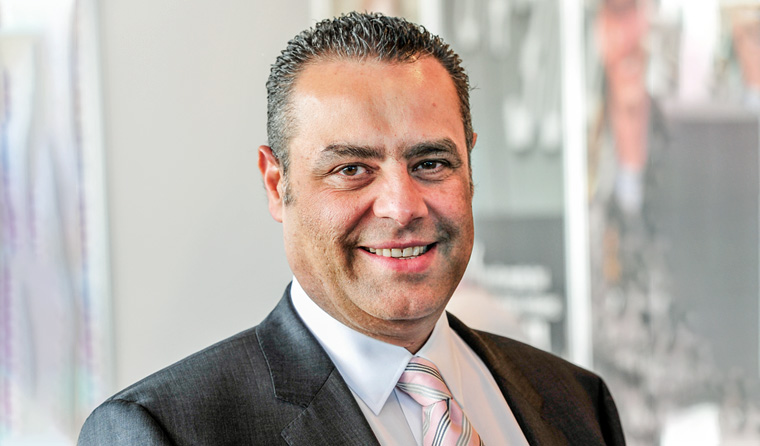News
RACGP commitment to rural GPs stronger than ever
President Dr Harry Nespolon and Vice-President Associate Professor Ayman Shenouda have moved to clarify comments regarding rural workforce strategy.
 The RACGP believes no one in Australia should be disadvantaged by virtue of their postcode.
The RACGP believes no one in Australia should be disadvantaged by virtue of their postcode.
The comments, made recently during a COVID-19 Rural and Remote Response webinar, were in response to a question about how the RACGP plans to overcome workforce issues exacerbated by the coronavirus pandemic.
RACGP President Dr Harry Nespolon told newsGP problems arose when he attempted to give a short answer to what is ‘an incredibly complicated and nuanced’ issue in general practice.
‘I provided a remark explaining that, in my previous experience, rural and remote positions have not been filled until all metropolitan areas are at capacity,’ he said.
‘To be clear: this position does not represent college policy. Nor does it accurately reflect the vital work the RACGP continues to undertake to fulfil our vision of equitable access to high-quality primary care in every rural and remote community across Australia.
‘I want to apologise for the confusion and angst that my remarks caused, but would also like to use it as an opportunity to reinforce the myriad ways the RACGP is working to ensure our vision becomes a reality.’
Dr Nespolon said ‘it could not be more evident’ that more work is required to balance rural and remote health outcomes with those in major cities, and pointed to the most recent Rural and remote health report to highlight the challenges GPs and patients in these areas face, including:
- a 40% higher burden of disease
- a potentially preventable hospitalisation rate that is 2.5 times higher in very remote areas than major cities
- higher rates of smoking, alcohol consumption, and obesity.
‘We also know that Australians who live outside of major cities experience poor mental health
at much higher rates than those in metropolitan areas,’ he said.
‘Compounding, and perhaps producing, these outcomes is the fact that people living in outer-regional areas are 2.5 times as likely to report distance to their nearest GP as a barrier to care – a figure that increases to six times as high for those in remote and very remote areas.
‘None of these statistics are good enough. No one in Australia should be disadvantaged by virtue of their postcode.’
RACGP Vice-President and RACGP Rural Chair Associate Professor Ayman Shenouda agrees. He told
newsGP the college has enacted a number of different strategies to improve equitable healthcare access and generate better outcomes for rural and remote Australians.
‘RACGP Rural continues to engage with the Federal Government to support and grow the rural and remote general practice workforce, and has done so for almost two decades,’ he said.
‘Recently, this has meant collaborating with the National Rural Health Commissioner, Emeritus Professor Paul Worley, in his work on the National Rural Generalist Pathway [NRGP].
‘The RACGP’s 2020–21 pre-budget submission also set out four recommendations that, if adopted, would contribute to the sustainability of the general practice sector and workforce.’
 RACGP Vice-President and RACGP Rural Chair Associate Professor Ayman Shenouda.
RACGP Vice-President and RACGP Rural Chair Associate Professor Ayman Shenouda.
Associate Professor Shenouda added that the focus of general practice training must change in order to attract more GPs to rural and remote areas.
‘Evidence shows that two of the strongest factors in determining whether GPs choose to work in rural communities are whether they are from rural communities, and whether they have positive training experiences in rural placements,’ he said.
‘As part of this shift, the RACGP is developing a new
Fellowship for Rural Generalists, demonstrating a commitment from the college to developing
flexible and robust training that meets the changing needs of the general practice workforce in rural and remote communities.
‘We also made clear in the RACGP
submission to the National Medical Workforce Strategy our ongoing support for initiatives such as investing in rural supervision, increasing time spent training in rural areas, highlighting
the value of rural GP experience, and
remunerating rural GPs appropriately.’
According to Associate Professor Shenouda, events such as at the February 2020 Rural GP Summit in Alice Springs show that the RACGP prioritises rural and remote health in Australia, and are crucial for helping the college advocate for change.
‘The RACGP is able to form strategies in response to the challenges and needs of our rural and remote colleagues because we regularly seek feedback from these very members,’ he said.
‘The summit saw more than 100 delegates discussing the key issues of rural workforce distribution, while simultaneously identifying a range of practical solutions that could help rural and remote GPs provide the highest quality care to their communities.
‘These ideas are already being used by the college to inform advocacy, education, and member engagement activities.’
Dr Nespolon said he is looking forward to the RACGP and its members making further progress with regard to rural and remote primary care, and asked anyone who was upset by his comments to judge the college on its actions.
‘Like me, the RACGP is not infallible and it will make mistakes along the way,’ he said.
‘But while we always invite members to scrutinise our strategies and provide feedback, our commitment to the cause of rural and remote general practice is unwavering.
‘We are all in the struggle together, no matter which part of this land we call home.’
Log in below to join the conversation.
National Rural Generalist Pathway RACGP Rural rural health
newsGP weekly poll
What is your chief concern with role substitution?